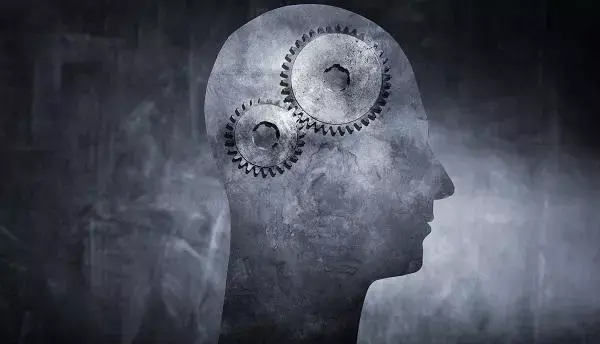- Home
- Medical news & Guidelines
- Anesthesiology
- Cardiology and CTVS
- Critical Care
- Dentistry
- Dermatology
- Diabetes and Endocrinology
- ENT
- Gastroenterology
- Medicine
- Nephrology
- Neurology
- Obstretics-Gynaecology
- Oncology
- Ophthalmology
- Orthopaedics
- Pediatrics-Neonatology
- Psychiatry
- Pulmonology
- Radiology
- Surgery
- Urology
- Laboratory Medicine
- Diet
- Nursing
- Paramedical
- Physiotherapy
- Health news
- Fact Check
- Bone Health Fact Check
- Brain Health Fact Check
- Cancer Related Fact Check
- Child Care Fact Check
- Dental and oral health fact check
- Diabetes and metabolic health fact check
- Diet and Nutrition Fact Check
- Eye and ENT Care Fact Check
- Fitness fact check
- Gut health fact check
- Heart health fact check
- Kidney health fact check
- Medical education fact check
- Men's health fact check
- Respiratory fact check
- Skin and hair care fact check
- Vaccine and Immunization fact check
- Women's health fact check
- AYUSH
- State News
- Andaman and Nicobar Islands
- Andhra Pradesh
- Arunachal Pradesh
- Assam
- Bihar
- Chandigarh
- Chattisgarh
- Dadra and Nagar Haveli
- Daman and Diu
- Delhi
- Goa
- Gujarat
- Haryana
- Himachal Pradesh
- Jammu & Kashmir
- Jharkhand
- Karnataka
- Kerala
- Ladakh
- Lakshadweep
- Madhya Pradesh
- Maharashtra
- Manipur
- Meghalaya
- Mizoram
- Nagaland
- Odisha
- Puducherry
- Punjab
- Rajasthan
- Sikkim
- Tamil Nadu
- Telangana
- Tripura
- Uttar Pradesh
- Uttrakhand
- West Bengal
- Medical Education
- Industry
Mindfulness-Based Cognitive Therapy provides better outcome than CBT: JAMA

A new study published in the Journal of American Medical Association Psychiatry suggests that adults in primary care settings should frequently be administered mindfulness-based cognitive therapy self-help (MBCT-SH) for mild to moderate depression.
Adults with mild to moderate depression should follow treatment guidelines that call for cognitive behavioral therapy self-help (CBT-SH), however dropout rates are significant. Different strategies are needed. In order to find out if practitioner-supported MBCT-SH is more effective than practitioner-supported CBT-SH at lowering depressive symptom severity in patients with mild to moderate depression at 16 weeks postrandomization, Clara Strauss and team conducted this study. They also looked at whether practitioner-supported MBCT-SH is more cost-effective than practitioner-supported CBT-SH.
This study compared the effectiveness of practitioner-supported MBCT-SH and practitioner-supported CBT-SH for adults with mild to moderate depression. It was an assessor- and participant-blinded superiority randomized clinical trial with 1:1 automated online allocation stratified by center and depression severity. Ten publicly funded psychological treatment services in England participated in the study (Improving Access to Psychological Therapies [IAPT]). 410 out of a total of 600 clients receiving IAPT services had their eligibility determined. Participants had mild to severe depression, according to diagnostic standards. Data was examined between January and October 2021. Patient Health Questionnaire (PHQ-9) score at 16 weeks after randomization was the preregistered main outcome. Intention-to-treat analysis with masked treatment arms was used as the main analysis.
The key findings of this study were;
The median (IQR) age of the 410 randomized participants was 32 (25-45), and 255 (62.2%) of them were female.
When compared to practitioner-supported CBT-SH, practitioner-supported MBCT-SH significantly reduced the intensity of depressive symptoms at 16 weeks postrandomization, with a between-group difference of 1.5 PHQ-9 points.
Almost 95% of the time, MBCT-SH outperformed CBT-SH in terms of cost-effectiveness.
Yet, although being in the anticipated direction, between-group impacts on secondary outcomes were largely nonsignificant.
Three significant adverse events that were all judged unrelated to the research were recorded.
In this randomized clinical study, practitioner-supported MBCT-SH outperformed practitioner-supported CBT-SH as the recommended treatment for moderate to mild depression in terms of clinical efficacy and financial efficiency.
Reference:
Strauss, C., Bibby-Jones, A.-M., Jones, F., Byford, S., Heslin, M., Parry, G., Barkham, M., Lea, L., Crane, R., de Visser, R., Arbon, A., Rosten, C., & Cavanagh, K. (2023). Clinical Effectiveness and Cost-Effectiveness of Supported Mindfulness-Based Cognitive Therapy Self-help Compared With Supported Cognitive Behavioral Therapy Self-help for Adults Experiencing Depression. In JAMA Psychiatry. American Medical Association (AMA). https://doi.org/10.1001/jamapsychiatry.2023.0222
Neuroscience Masters graduate
Jacinthlyn Sylvia, a Neuroscience Master's graduate from Chennai has worked extensively in deciphering the neurobiology of cognition and motor control in aging. She also has spread-out exposure to Neurosurgery from her Bachelor’s. She is currently involved in active Neuro-Oncology research. She is an upcoming neuroscientist with a fiery passion for writing. Her news cover at Medical Dialogues feature recent discoveries and updates from the healthcare and biomedical research fields. She can be reached at editorial@medicaldialogues.in
Dr Kamal Kant Kohli-MBBS, DTCD- a chest specialist with more than 30 years of practice and a flair for writing clinical articles, Dr Kamal Kant Kohli joined Medical Dialogues as a Chief Editor of Medical News. Besides writing articles, as an editor, he proofreads and verifies all the medical content published on Medical Dialogues including those coming from journals, studies,medical conferences,guidelines etc. Email: drkohli@medicaldialogues.in. Contact no. 011-43720751


